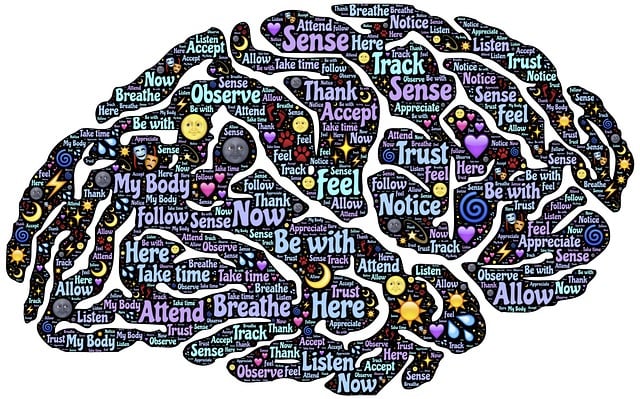Stigma significantly impedes access to mental health services like Englewood Family Counseling Therapy, perpetuating suffering and physical health issues. To combat this, Englewood provides a safe space for judgment-free discussions and offers tailored therapy, self-care education, and advocacy groups, empowering individuals to challenge stigma, improve well-being, and seek necessary care.
Mental illness stigma is a pervasive barrier to seeking help, yet efforts to reduce it are gaining momentum. This article explores four powerful strategies in the fight against mental health stigma: understanding its profound impact on individuals and communities; exploring the safe space provided by counseling centers like Englewood Family Counseling Therapy; implementing educational initiatives that promote awareness and empathy; and harnessing the power of advocacy groups and support networks for lasting change.
- Understanding the Impact of Stigma on Mental Health
- Englewood Family Counseling Therapy: A Safe Space for Conversation
- Educational Initiatives to Reduce Stigma
- Advocacy and Support Groups: Building a Community of Understanding
Understanding the Impact of Stigma on Mental Health

The impact of stigma on mental health cannot be overstated, especially for individuals seeking support through services like Englewood Family Counseling Therapy. Stigma often acts as a barrier, deterring people from discussing their struggles openly and seeking professional help. This can lead to prolonged suffering and a worsening of symptoms. The consequences are far-reaching; those affected may experience reduced self-esteem, isolation, and even physical health issues due to the stress of hiding or denying their mental health challenges.
Efforts to reduce stigma are crucial in fostering an environment where individuals feel comfortable discussing their mental health without fear of judgment. This includes initiatives like Healthcare Provider Cultural Competency Training, which equips professionals with the skills to understand and address cultural biases that may contribute to stigma. By promoting positive thinking and self-esteem improvement, communities can create a supportive atmosphere, encouraging those struggling to seek the care they need, ultimately leading to better mental health outcomes.
Englewood Family Counseling Therapy: A Safe Space for Conversation

Englewood Family Counseling Therapy offers a safe haven where individuals and families can openly discuss their mental health struggles without fear of judgment. This supportive environment encourages vulnerability, fostering meaningful conversations that break down barriers associated with mental illness stigma. By providing a confidential space, the therapy centre enables clients to explore their emotions, understand their experiences, and develop coping strategies for better mental well-being.
Through individual, family, and group therapy sessions, Englewood Family Counseling Therapy focuses on depression prevention, promoting self-care routine development, and nurturing inner strength. The centre’s skilled therapists employ evidence-based practices tailored to each client’s unique needs, ensuring personalized care that empowers individuals to overcome challenges and thrive.
Educational Initiatives to Reduce Stigma

Educational initiatives play a pivotal role in reducing the stigma surrounding mental illness. Organizations like Englewood Family Counseling Therapy are at the forefront of this movement by providing comprehensive programs aimed at enhancing mental health literacy among communities. These efforts involve hosting workshops, seminars, and awareness campaigns that demystify various mental health conditions, challenge societal misconceptions, and promote empathy. By presenting accurate information about symptoms, treatment options, and recovery processes, these initiatives help dispel myths and fear-based beliefs often associated with mental illness.
Englewood Family Counseling Therapy’s approach to stigma reduction goes beyond knowledge transfer. Their programs also focus on fostering open conversations about mental health, encouraging individuals to share their personal experiences and engage in dialogues that normalize discussions around psychological well-being. Integrating self-care practices and risk management planning for mental health professionals further strengthens these initiatives, ensuring a holistic and supportive environment where individuals can learn, grow, and seek help without fear of judgment or discrimination.
Advocacy and Support Groups: Building a Community of Understanding

Advocacy and support groups play a pivotal role in reducing the stigma surrounding mental illness by fostering a community of understanding and acceptance. These groups provide a safe space for individuals grappling with various psychological challenges to share their experiences, offering both comfort and hope. Through open dialogue and collective efforts, members challenge societal perceptions and dispel myths about mental health issues. The presence of such communities encourages those who might otherwise struggle in silence to seek help and support from professionals like those at Englewood Family Counseling Therapy.
Moreover, advocacy groups often organize educational initiatives that promote mindfulness meditation, resilience building, and self-esteem improvement as coping mechanisms. By integrating these practices into their platforms, they empower individuals with tools to navigate mental health journeys. Such efforts not only reduce the stigma but also equip people with strategies to enhance overall well-being.
Mental illness stigma reduction is a multifaceted approach that includes creating safe spaces like Englewood Family Counseling Therapy, implementing educational initiatives, and fostering communities through advocacy and support groups. By understanding the profound impact of stigma on mental health and actively working to dispel it, we can create an environment where everyone receives the care they need without fear of judgment. Initiatives like those highlighted in this article are vital steps towards a more inclusive and compassionate society that prioritizes mental well-being for all.














